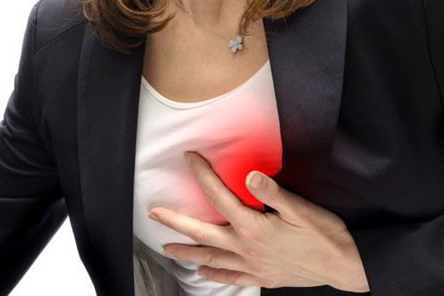According to the World Health Organization, every two seconds one person dies of cardiovascular disease; every five seconds one person suffers from a heart attack that warning signals are chest pain attacks. Pain occurs often in strenuous activities such as climbing up stairs, playing sports, being anxious, after taking a full stomach, being cold, etc. or sometimes during at rest or at night.
Why do you have angina pectoris?
When angina pectoris occurs, the patient feels strangled, burning at the area of the front of the heart associated with anxiety, nervousness, pale skin, sweating and cold hands and feet. The pain may spread to the neck, jaw, left shoulder, left arm or back, usually lasting more than 20 minutes.

What causes angina pectoris?
Most cases of angina pectoris are due to suffering from coronary artery disease such as coronary insufficiency, coronary failure, coronary atherosclerosis. The main cause of the disease is related to an accumulation of plaque in the arteries causing narrow arteries. Studies have shown that 95% of patients with coronary artery disease are involved in one of the following factors: hypertension, dyslipidemia, diabetes, obesity, smoking, familial coronary artery disease, old age. Coronary artery disease progresses slowly for many years and the patient do not know it is existing in their body. Therefore, in most cases, the symptoms are not noticed until the coronary arteries are narrowed to a considerable extent, resulting in myocardial ischemia and in particular, dangerous complications such as myocardial infraction, sudden death, heart failure, arrhythmias, etc.